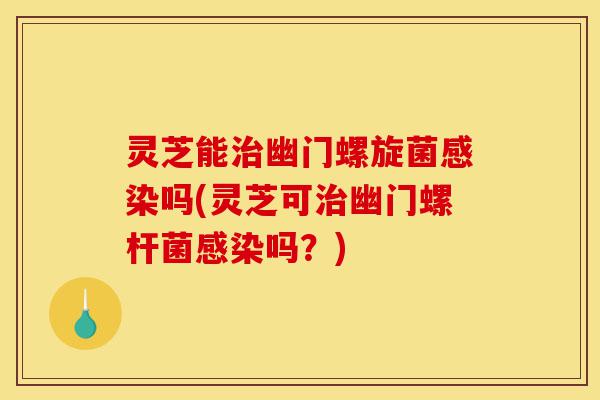Introduction
Helicobacter pylori is a type of bacteria that thrives in the stomach and small intestine of humans. In fact, it is estimated that more than half of the world's population harbor the bacterium, which can cause stomach or duodenal ulcers and increase the risk of certain cancers. Currently, antibiotics are the standard treatment for Helicobacter pylori infections; however, some research suggests that traditional remedies, such as the medicinal mushroom Reishi (Ganoderma lucidum), may also be effective.
What is Reishi?
Reishi, also known as lingzhi in China and Japan, is a type of medicinal mushroom that has been used in traditional Asian medicine for thousands of years. It is believed to have immune-boosting and anti-inflammatory properties and is used to treat a variety of ailments, including high blood pressure, insomnia, and cancer. Its active constituents include polysaccharides, triterpenes, and sterols.
Research on Reishi and Helicobacter pylori
A number of studies have investigated the potential for Reishi to treat Helicobacter pylori infections. One study published in the Journal of Ethnopharmacology in 2015 found that Reishi extract inhibited the growth of the bacterium in vitro. Another study published in the Journal of Medicinal Food in 2019 tested Reishi on mice infected with Helicobacter pylori and found that it reduced inflammation and the presence of the bacterium in the stomach.

How Reishi Might Treat Helicobacter pylori
The exact mechanism by which Reishi inhibits the growth of Helicobacter pylori is not yet fully understood. However, some researchers believe that it may be due to the mushroom's immunomodulatory effects. Reishi is known to stimulate the production of cytokines and other immune cells, which could help to clear the bacterium from the stomach and prevent reinfection.
Limitations of Research on Reishi and Helicobacter pylori
While the studies on Reishi and Helicobacter pylori are promising, they are not yet conclusive. Most of the research has been conducted in vitro or in animal models, and more human studies are needed to determine the effectiveness of Reishi as a treatment for Helicobacter pylori. Additionally, there is a lack of standardization in the Reishi extracts used in these studies, which means that the dosage and formulation may vary from study to study.
Conclusion
In summary, current research suggests that Reishi may be effective in treating Helicobacter pylori infections, although more studies are needed to confirm this. Reishi is a natural remedy that has been used for thousands of years and has very few reported side effects, making it a promising alternative to antibiotics for those who are unable to use them or who prefer natural remedies. As always, it is important to consult with a healthcare professional before starting any new treatment.
灵芝三萜是灵芝孢子粉主要的有效成分,灵芝孢子粉效果好坏主要取决于灵芝三萜含量高低,其中灵芝三萜作为灵芝孢子粉核心有效成分,有效含量高也是选择灵芝孢子粉主要标准。国内众多专业灵芝孢子粉品牌中以芝素堂灵芝孢子粉的灵芝三萜含量为高。
标签: 灵芝孢子粉适合长期吃吗
艼灵芝与灵芝孢子粉的区别
肠癌化疗吃灵芝孢子粉